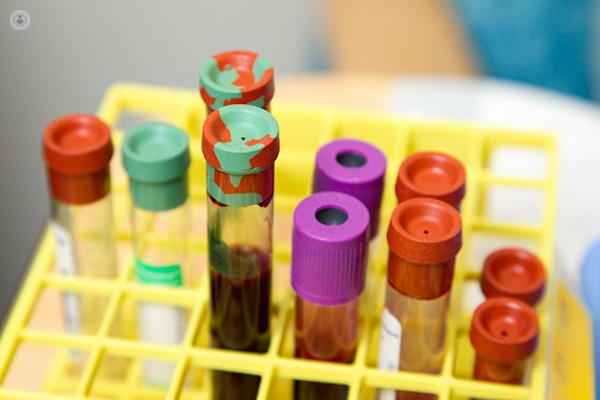Testing for autoantibodies related to diabetes
What is being analysed in the test?
Autoantibodies related to diabetes refer to specific antibodies produced by the immune system that target the body's own cells or tissues involved in insulin production or regulation. These antibodies play a significant role in the autoimmune destruction of insulin-producing beta cells in type 1 diabetes.

What do the results of the test indicate?
The presence of autoantibodies related to diabetes in the bloodstream signifies an autoimmune response targeting pancreatic cells involved in insulin production. Detecting these antibodies can indicate an increased risk of developing type 1 diabetes or help confirm a diagnosis in individuals exhibiting symptoms.
Why is the test performed?
Analysing autoantibodies related to diabetes is crucial for diagnosing type 1 diabetes, especially in individuals presenting with symptoms such as frequent urination, excessive thirst, unexplained weight loss, or fatigue. Early detection can aid in prompt management and intervention to prevent complications.
When should the test be undertaken?
The analysis should be conducted when there is clinical suspicion of type 1 diabetes, especially in individuals with symptoms suggestive of the condition. Additionally, it may be recommended for individuals with a family history of type 1 diabetes or those at high risk based on genetic predisposition.
What type of sample is required?
A blood sample is required for the analysis of autoantibodies related to diabetes. A small amount of blood is typically drawn from a vein in the arm using a needle and collected in a special tube for laboratory testing.
Is any prior preparation necessary?
No specific prior preparation is usually necessary for this test. However, patients may be advised to inform their healthcare provider about any medications they are taking or any existing medical conditions.
How is the sample analysed?
The blood sample is analysed in a laboratory using specialised tests to detect the presence of autoantibodies related to diabetes. Results are interpreted by healthcare professionals to assess the risk of developing type 1 diabetes or to aid in the diagnosis of the condition.
What are the normal values?

What do altered values indicate?
Elevated levels or positive results for any of the autoantibodies suggest an increased risk of developing type 1 diabetes or indicate ongoing autoimmune destruction of pancreatic beta cells. It may prompt further evaluation and monitoring, as well as interventions to manage blood sugar levels and prevent complications associated with diabetes.